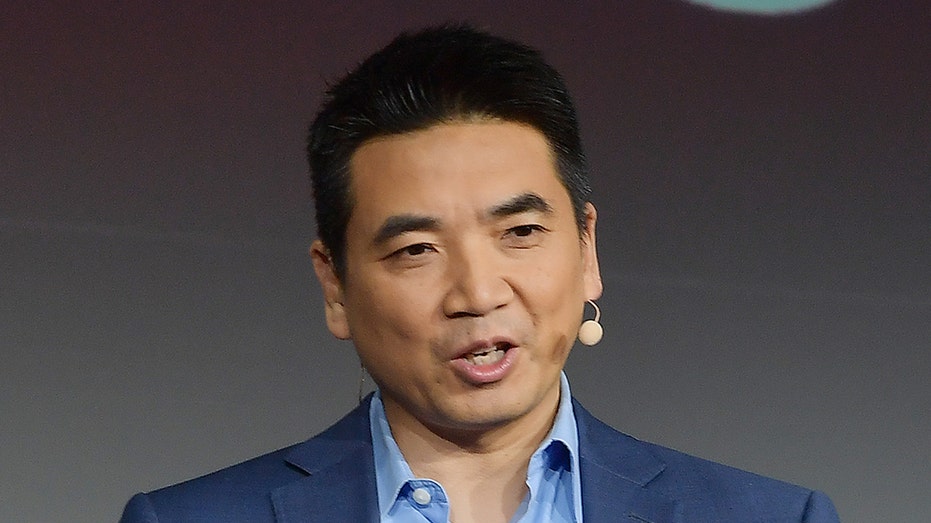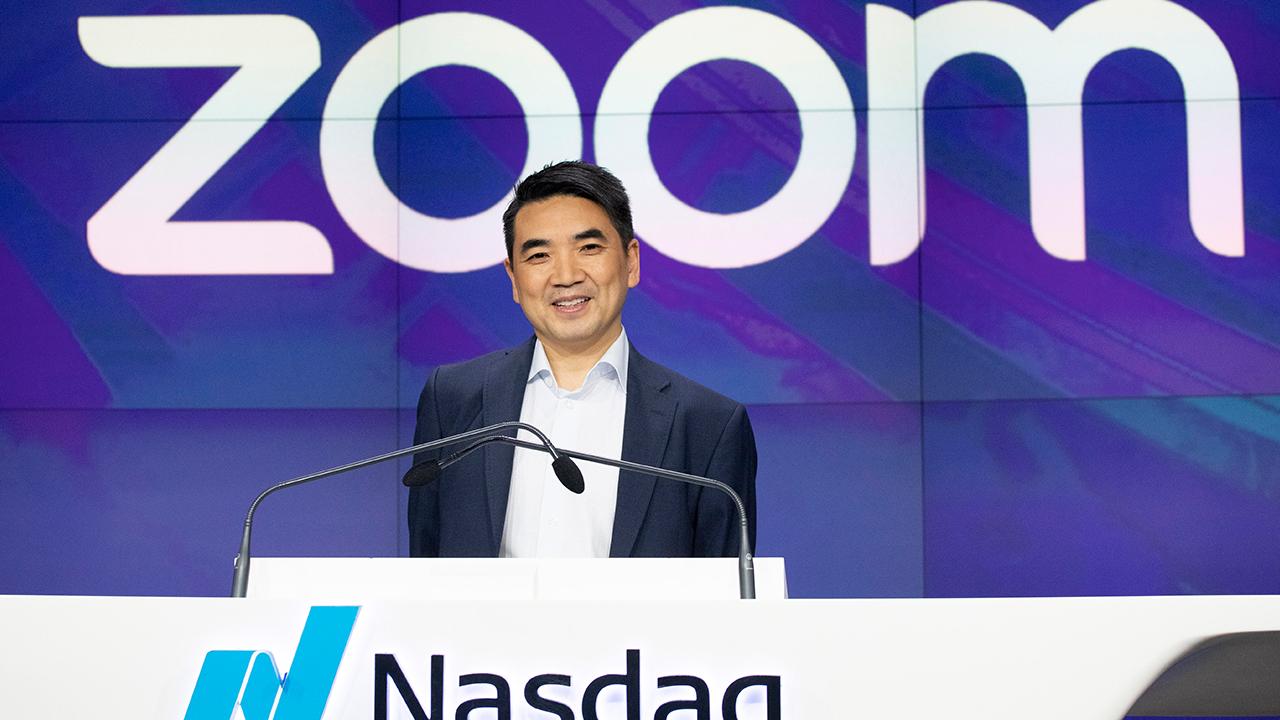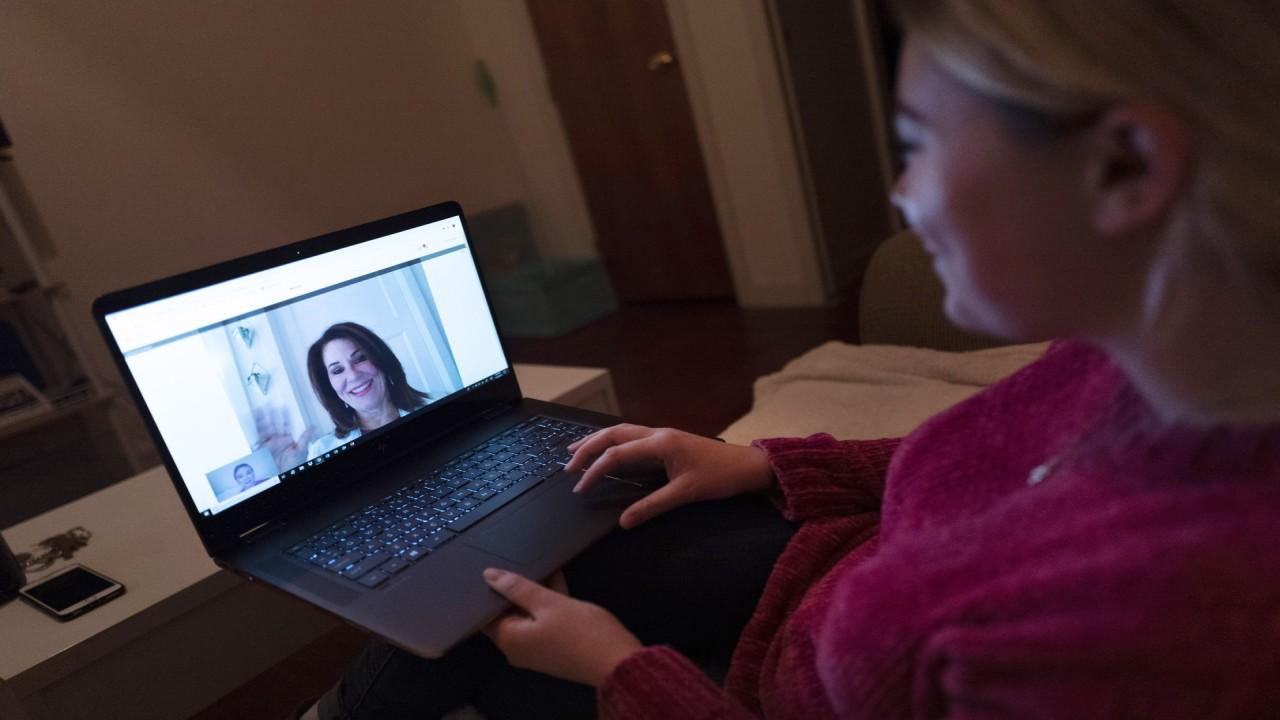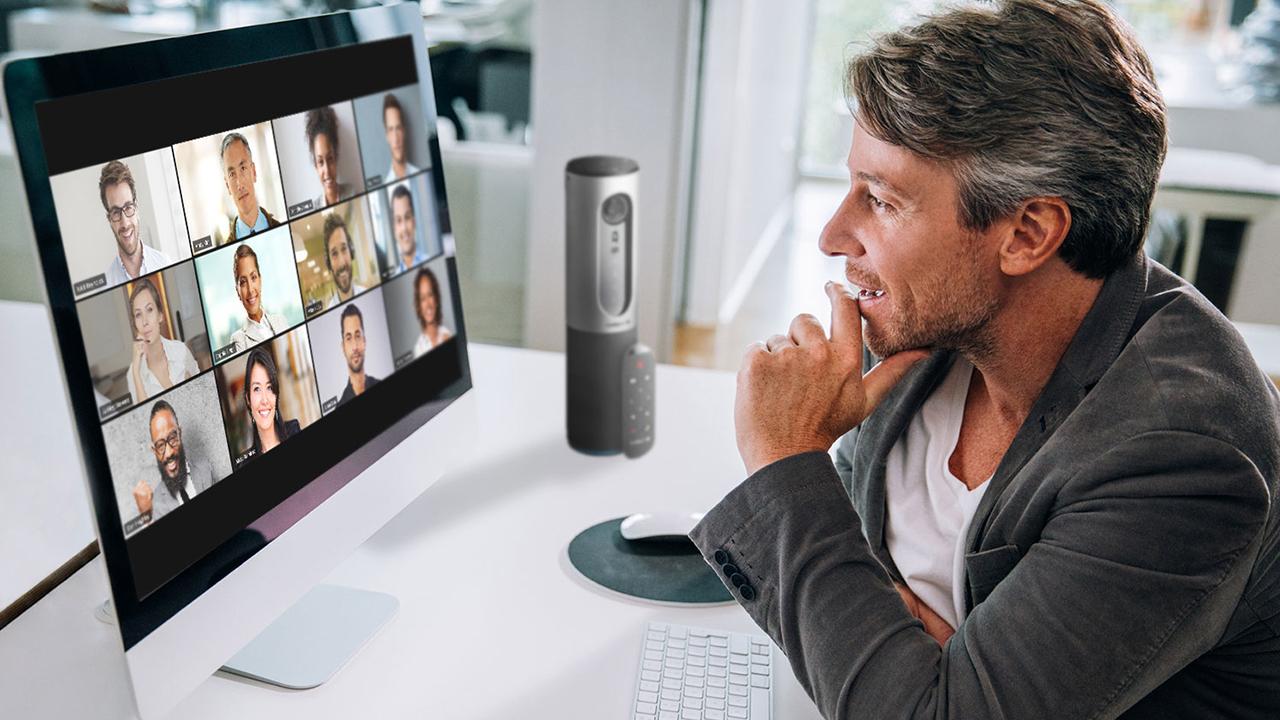Zoom CEO's coronavirus quarantine routine includes meditation, nonstop meetings
Eric Yuan discussed Zoom's surging user base and overcoming privacy concerns
Get all the latest news on coronavirus and more delivered daily to your inbox. Sign up here.
Quarantine Routine is a regular feature that asks political, business, sports and entertainment power brokers how their daily lives have changed -- and how they're still doing their jobs -- during the coronavirus crisis.
Few executives have garnered as much scrutiny in recent weeks as Zoom Video Communications CEO Eric Yuan, the founder of a teleconferencing platform that has played a crucial role in the daily routines of millions of Americans striving to connect during the coronavirus pandemic.
Originally developed as a tool for businesses, Zoom experienced a massive influx of users as shelter-in-place orders forced Americans to stay at home and rely on technology to keep in touch. The company surpassed 300 million daily meeting participants earlier this month, up from just 10 million daily participants as of December 2019.

SAN FRANCISCO, CALIFORNIA - SEPTEMBER 25: Eric Yuan speaks onstage during the Dropbox Work In Progress Conference at Pier 48 on September 25, 2019 in San Francisco, California. (Photo by Matt Winkelmeyer/Getty Images for Dropbox)
At a time of extreme volatility in U.S. markets and financial hardship for many businesses, Zoom shares have doubled in value so far this year. However, Zoom’s explosive growth and high-profile role in the daily lives of so many Americans brought intense scrutiny of its security standards.
MICROSOFT NOTES 'MINIMAL' CORONAVIRUS IMPACT AS REVENUE TOPS EXPECTATIONS
Instances of “Zoombombing,” a practice in which online trolls crash meetings or remote class lessons to share explicit material, garnered so much attention that the FBI issued a warning about teleconference hijacking. Yuan apologized for Zoom’s security flaws in a lengthy blog post earlier this month, acknowledging the platform’s efforts on privacy had “fallen short.”
Yuan spoke to FOX Business about how his work and personal lives have changed since the coronavirus pandemic began and how Zoom is adjusting to an unprecedented test of its business practices.
FOX Business: How has your daily routine changed since social distancing measures began?
Yuan: We sent all the employees home to work since early March. It’s over a month now. And overall, I think from a productivity perspective, I did not see any productivity loss. If anything, everyone is even busier. However, it’s pretty challenging because everyone is working from home and we’re busier, with more meetings … we can’t see each other face-to-face in meetings and it’s very unusual. So from that perspective, I think we’re still learning.
Overall, I think myself and our executive team and all Zoom employees, we’ve adapted to this. It’s pretty challenging but we’ve learned how to deal with that, because we’re likely, in the next several months, probably we’re still working from home. The good news is, we do use Zoom a lot and we still can see each other over Zoom. Again, no productivity loss, but it’s pretty challenging and it’s something that’s never happened before. Everybody is learning how to adapt to working from home.
FOX Business: What are the biggest challenges in doing your job during this crisis?
Yuan: I think before this crisis, Mondays-Fridays were work in the office and over the weekend, clearly, Saturday and Sunday was family time, you know, drive kids to activities. But it’s hard working from home, every day is the same. Monday and Sunday, you don’t know what’s the date of today. Every day is the same. When I wake up, I start working. It’s sleep, eat and Zoom. That’s why it’s pretty tough – you don’t have a lot of things to do.
But I did learn a little bit. In between, I try to schedule time to stretch, talk to the kids, talk to my wife and my mom. But still, in terms of activities, it’s not as rich as in the office. For me, it’s very simple. I counted the number of meetings [for a recent workday]. I had 19 Zoom meetings! Before I slept, I was like, wow. If every day is like this, I do not know how I can survive. So I changed it a little bit.
FOX Business: What do you miss the most about how you did your job before this began?
Yuan: I’m missing several things. Like sometimes, to have a customer visit us, shake hands with them, I give them a big hug, ‘thank you for becoming our customer.’ Our employees as well, at lunchtime, you enjoy the lunch with our employees and shake hands. You know, it’s a very intimate experience that’s completely gone. Unfortunately, Zoom does not have those features yet, so I cannot shake hands with you virtually. I think that’s probably the thing I miss the most.
Other than that, everything else in terms of overall business activities, we still can get the job done. We do not see any big impact, except for we’re busier, because you pin it to almost everything, you’re going to have a meeting to discuss. Rather, in the office, we’ll walk by to your cube, to your office, and have a quick chat and things done. It’s not like that at all.
EX-SAINTS STAR MARQUES COLSTON'S QUARANTINE ROUTINE
FOX Business: What surprised you most about how life has changed?
Yuan: A lot of companies, a lot of people talked about working from home before, but no company, or very few, when this started, had no physical office. They know how to do that. For those companies like us who already have an established office, they never thought about it when they’d let all employees go back home. We would have never thought about that, we would just think that’s a totally weird thought. But now, actually because of this, we’re likely, after we go back to the office, it’s very likely that probably once a week, we will let every employee go back home to work.
FOX Business: How do you blow off steam?
Yuan: I just walk in the backyard to relax, a little bit of meditation. And in the evening, if my kids play basketball, I join them for 15, 20 minutes. Other than that, I just walk around in my backyard with my mom or with my wife or maybe myself and sit there for some meditation.
FOX Business: As a CEO, how have you balanced this huge increase in attention and scrutiny on Zoom with personal concerns about keeping yourself and your family safe during the pandemic?
Yuan: Again, that’s not easy. As far as the business side, for almost several months now, how to make sure we can support so many new users, how to make sure there are no capacity issues, always keep the service up, that’s the No. 1 challenge.
No. 2 is, we have so many new users. We built Zoom for the business customers. We have all of those security features built in, but normally, we leave it to our customer, the IT team, to configure that. We normally have an official onboarding process when they start using Zoom. Normally, that’s our process. But now [we have] a lot of first time new Zoom users. Looking back, we should have done a better job, meaning, not only do we offer the service to them, but also, we should play the role of IT. We should have simplified the package and given them a template. You know like, by default, should have a meeting password, should have enabled the meeting room feature.
A lot of security features, we need to configure for them. But again, this is something new and we did not realize that, and that’s where a lot of issues are coming from. But we learn quickly. I’m pretty proud of our company’s culture. Every company worked so hard, adapted to that and on the one hand, keeps the service up without any oddities and at the same time, fix all the privacy and any potential issues.
We have a high confidence about our company, the foundation of our security. Before this crisis, we had a lot of big companies, from financial institutions to government customers. We had a lot of companies who have come here on Zoom. They all did their own penetration testing, not to mention a lot of security conferences also use Zoom, so we have high confidence. This is just a new user case. As long as we learn what happened and fix that and prioritize that, I think we’ll be okay.
GET FOX BUSINESS ON THE GO BY CLICKING HERE
FOX Business: What’s it been like as a founder and CEO to see Zoom become such an integral part of how people are working and staying in touch during the pandemic?
Yuan: We’re proud if we did any service to really help with people’s lives. This is also our company’s corporate social responsibility, how to make the world a better place. That’s why I feel very proud. And outside of that, we never thought about this, to serve hundreds of millions of daily participants. We really built this service for serving the enterprise business customers and we are still in the middle, to learn how to serve those new users as well. Overall, I think this is very unexpected, but we are ready.
CLICK HERE TO READ MORE ON FOX BUSINESS
























